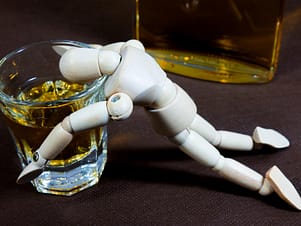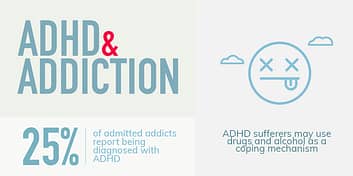But I’m a creep, I’m a weirdo.
What the hell am I doing here?
I don’t belong hereRadiohead
One day I will cast a wider net on the story of a life gone awry, because a simple tale on its its own is not sufficient to demystify all the complexies. The origin story will always be bigger, not better, and well threaded to build a stronger narrative to what was and is – but for now my story will be limited to the final descent into the abyss.
I could begin 1998, when I first moved out of the nest into my own home, alone for the first time – at least alone in the sense being surrounded by no-one at all. I wasn’t completely unfamiliar with alcohol and the loneliness of emptiness meant that a binge went unnoticed. You see, I could drink socially but never liked to be out of control so it was always limited to ensuring I’d never make a fool of myself (there were one or 2 exceptions but its difficult to make much of a fool of yourself going from conscious to blackout in a relative instant). But on my own, when I really felt like my sense of self was drifting into uncharted territory, a side step into a binge was not uncommon.
Or perhaps in 2010 when I first sought help from the mental health fraternity looking to deal with my depression and social anxiety, which had contributed to my continued binge drinking and ulimately full scale alcoholism. By now I was married, had a son, but there were still times when I failed to manage the feelings of worthlessness, or when I would get internally seriously frustrated with my inability to manage seemingly innocuous situations, or when life just seemed out of control and everyone else was cruising along.


But the final descent started towards the end of 2015. Things at work had taken a turn for the worse – my lack of “suitable” qualifications saw me increasingly sidelined and isolated, my penchant for speaking out against injustices, bullying and toxic politics would make me a marked man. It would be routine to go home and pour stiff drink, throw it back and pour the next one. Helplessness, feeling isolated, undervalued and irrelevant with nowhere to turn would see me ramping up my need to numb the pain and silent the eternal chatter in the mind.
One morning while sitting at my desk I had my first panic attack – it felt like I had lost the abilitiy to breath without reminding myself to breath and the world was closing in. I rushed myself to casualty, 17km away, in a fugue state. It was there while talking things through with a casualty doctor that the reality of my drinking habits were outed as the cause of my worrying trend of health issues I seemed to be wracking up. It was through this doctor that I made my first real attempt to seek proper psychiatric help that would put me on the path to discovery.
The next 2 years would be hell though because instead of my drinking improving it became chronic against all better judgement. The helplessness, the emotional pendulum, the rationalisation saw me ramping up my drinking all the while maintaining a façade of normalcy outside the home.
I was drinking everyday, weekends would pass in a blur, there would be memory blocks from frequent blackouts and still on the outside everything looked normal – until the latter part of 2017 when it would finally spill over into the workplace and after a random breathalyser meant I could no longer hide.
It wasn’t a wake up call though, it just meant that my calculated habit of managing my intake to be ready for the next day was falling apart. And I was tired. I had decided that I had had enough. This suicide by proxy routine was threatening everything I held dear, and the last vestige of common sense prevailed. I would finally come to the decision that I needed to call for help and be admitted to rehab.
The irony was that from the company’s perspective I would have to wait until it was convenient for their schedule before removing myself from the world for 21 days – so for another 2.5 months a portable breathalyzer was my only lifeline from an outright disciplinary process.
I walked into Panorama Mediclinic on 16 January 2018 for my initial detox under my psychiatrists supervision – one last swig on the way out the door. And my life changed – irrevocably.


On the 18th I transferred to Claro Clinic Rehab Centre and would spend the next 21 days sheltered from the world, and being tooled in the art of managing my life beyond.
This would later be defined as the best gift I would ever give myself.
But it was also here where, through one of my many one on one sessions, my psychiatrist finally diagnosed me with ADHD – my life story a litany of symptoms of ADHD undiagnosed – procrastination, emotional dysregulation, rejection sensitivity. Later on I would be be able to place myself firmly on the Inattentive spectrum, with a side order of Impulsivity.
I was initially put on 10mg of Ritalin and it was as if the scales fell from my eyes – or as I had said to my shrink – where I’d always felt like I was out of phase with the rest of the world I finally felt like I had synched back into phase. The seismic shift in my sense of being was almost instantaneous, and I knew that I had found the missing piece that had evaded my self awareness for so long. I’d also acknowledge that my addiction to alcohol had been a form of self medication meant to quiet the constant critical voice and numb the eternal sense of helplessness I’d felt. Now that I knew better I could live better.
ADHD and the Grief Cycle
With a late diagnosis of ADHD there is often elements of the grief cycle that follow –
Denial: I skipped the Denial because the diagnosis made so much sense to me, it answered a lot of questions.
Anger: Hell, yeah. Now that I was no longer self medicating I unleashed my emotional dysregulation. I was apoplectic at the wasted years, the path of failures where I could never complete anything; I was angry when others tried to know better, telling me that I could not be sober because I believed my truth had been found.
Bargaining: This fed my anger – the “What if” phase. What if I’d known I had ADHD when I left school and bombed at varsity? What if I’d known that I had Rejection Sensitivity Dysphoria when I stopped becoming close friends with people because I believed that once too close they would move away? What if I had taken my isolation more seriously and approached the right people earlier? What if life came with a more user friendly manual.
Depression: This is another one that I sidestepped – depression was part of me, but the roots of the depression were starting to make sense, and so I didn’t get more depressed – in fact 18months down the line I had tapered my anti-depressants from 225mg down to 75mg [NOTE: In consultation with my psychiatrist] because I adamantly believe that it was the step child to my primary co-morbidity viz ADHD.
Acceptance: While it would seem that acceptance was by default I would caution that acceptance is more than just of the diagnosis. I still struggle to accept some of the “What ifs” because it has impaired my life’s progress, and this will be an ongoing journey. We all like to feel valued, that we have contributed to life, and sometimes those “What Ifs” have stood in the way or derailed my own desires.
The Facts
They say that 25 – 40% patients in rehab potentially have ADHD – this from a 2 – 8% overall population of persons with ADHD. Its significant that even at the lower end the % of people with ADHD in rehab is disproportionate to the neurotypicals – and in South Africa, many of these will not find themselves diagnosed under the current treatment models. It takes medical professionals who are prepared to step outside of the current paradigm and listen to the heart of their patient, not just their words.
More importantly, the support models post rehab do not take this into consideration, and until both the medical and support fraternity realise that until the underlying condition is identified and managed, the likelihood of the revolving door for relapsing remains.
Stigmas exist for almost all forms of mental health, and we need to shift this paradigm. People do not seek help because it is seen as a sign of weakness, or they going to carry a label, or they are going to be overlooked. People don’t seek help because its “all in their head”, “pull yourself up by your bootstraps” and an admission would be tantamount to dropping out of society. People don’t seek help because they don’t always know that they need help – or any of the combination above.
I’d taught myself from young that I would never make myself vulnerable to others – and so, this coupled with an underlying condition, that undiagnosed, meant I didn’t look for appropriate interventions, ultimately creating the perfect conditions for my disaster. I would hope that my journey is not wasted, and that I can serve others who may find themselves trying to make sense of a world seen through a different lens.

Thank you for sharing this. When you wrote about the cycle of grief, your anger step was heartbreaking.
I look forward to reading more about your story. ✌️
Extremely well-articulated, explaining a great deal in a nutshell. Yes, life can be awful, I know, but you still have many years ahead of you to make a difference to your life.
By the way, you write very well – who knows, you could become an author of books!
Good for you, Shane!
Please try to cease to see the “wasted years” – my view is that there are no “wasted years”. I have been on my own path, not an ADHD path, but nevertheless still a path, that at times had been very painful too. I am still on that path, and will be so for the rest of my life.
I still attend a weekly-fortnightly group (now on Zoom), run by a clinical psychologist who does Buddhist teachings, and we do quigong and meditation also.
The point that I am trying to make, is that you have found your own path and am moving on it. Many, many people never find their own paths, and forever stay in the wilderness.
So, hang in there!
Wow. I felt like I was reading my own life story. The never reaching my full potential as the once known brilliant scholar, the depression since teenage years, the intense alcohol abuse, being the voice of all the underdogs at work….even the years when it all began to fall apart 2017. Yet we couldn’t be more different, I’m a black girl. Clearly, ADHD does not discriminate 🙂